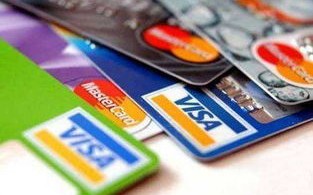User is interested in blockchain technology innovations. innovative initiatives that have been driving advancements and transforming various industries. Here are some key innovative initiatives in the blockchain technology domain:
1.
Smart Contracts
: Smart contracts are selfexecuting contracts with the terms of the agreement directly written into code. They automatically enforce and facilitate the negotiation or performance of a contract, reducing the need for intermediaries and streamlining processes in sectors like finance, supply chain management, and real estate.2.
Decentralized Finance (DeFi)
: DeFi refers to a variety of financial services and applications built on blockchain technology that aim to recreate traditional financial systems without centralized control. This includes lending, borrowing, trading, and investing in digital assets, providing greater accessibility and transparency to users globally.3.
NonFungible Tokens (NFTs)
: NFTs are unique digital assets that represent ownership or proof of authenticity of a particular item or piece of content, such as art, collectibles, or virtual real estate. They have gained popularity in the art and entertainment industries, enabling artists and creators to monetize their work directly and securely.4.
Blockchain in Supply Chain
: Blockchain technology is being used to enhance supply chain management by providing a transparent and immutable ledger of transactions. This helps in tracking goods from their origin to the end consumer, ensuring authenticity, reducing fraud, and improving efficiency in logistics.5.
Interoperability Solutions
: Interoperability solutions aim to address the challenge of different blockchain networks operating in isolation. Initiatives like crosschain communication protocols and interoperable blockchain platforms enable seamless communication and transfer of assets across multiple blockchain networks.
6.
BlockchainBased Identity Management
: Blockchain offers a secure and decentralized solution for identity management, allowing individuals to have control over their personal data and authenticate their identity without relying on centralized authorities. This has applications in digital identity verification, access control, and secure authentication processes.7.
Tokenization of Assets
: Tokenization involves representing realworld assets, such as real estate, stocks, or commodities, as digital tokens on a blockchain. This enables fractional ownership, increased liquidity, and easier transferability of assets, opening up new investment opportunities and democratizing access to traditionally illiquid assets.8.
Blockchain for Voting and Governance
: Blockchain technology can enhance transparency and security in voting systems and governance processes. By recording votes and decisions on a distributed ledger, blockchain mitigates risks of fraud and manipulation, ensuring the integrity of democratic processes.These innovative initiatives showcase the diverse applications and potential of blockchain technology across various sectors, driving efficiency, transparency, and decentralization in modern digital ecosystems.







